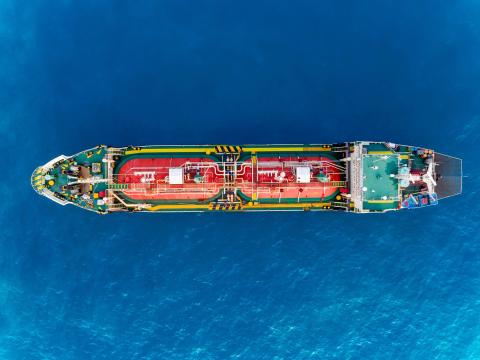
Energy Saving at Sea
The Global Industry Alliance to Support Low Carbon Shipping (Low Carbon GIA) is a public-private
partnership, established under the framework of the IMO-Norway GreenVoyage2050 Project, that
brings together maritime industry leaders with a view to supporting an energy efficient and low carbon
maritime transport system. Leading shipowners and operators, classification societies, engine and
technology manufacturers and suppliers, big data providers, oil companies and ports have joined
hands under the Low Carbon GIA to collectively identify and develop innovative solutions to address
common barriers to the uptake and implementation of energy efficiency technologies, operational
best practices and alternative low- and zero-carbon fuels.
As part of this collaboration, the Low Carbon GIA have developed free E-learning courses on energy
efficient ship operation and energy saving at sea, to help raise awareness and support those in the
maritime sector understand how they could contribute to reducing GHG emissions from ships.
This course explains key principles underlying the energy efficient operation of ship machinery and
equipment. The course will look at some of the practical operational measures for energy saving on
board ships. The first module focuses on how energy can be saved by the engine department and the
second module covers what the deck department, in cooperation with the company’s shore
operations, can do to reduce energy consumption and, as a result, reduce greenhouse gas emissions.
At the end of the course, you will be able to:
• Understand which aspects of ship handling, ship operations and engine room operations can
have an impact on energy saving;
• Describe how ship’s fuel consumption can be reduced;
• Outline the different measures that can improve ship energy efficiency; and
• Discuss how practical measures could be implemented on board your ship.
This course, Energy Saving at Sea, primarily aimed at seafarers, is a complement to the Introductory
course on Energy Efficient Ship Operation and covers detailed practical measures that can be taken by
the Engine department and Deck department on board ships. It is divided into 2 modules:
Module 1: Energy saving by the Engine department
Module 2: Energy saving by the Deck department
Each module focuses on actions that seafarers can take to contribute to the improvement of energy
efficiency on board.
This self-paced course on Energy Saving at Sea is broken down into two modules:
Module 1 – Energy saving by the Engine Department
Module 2 – Energy saving by the Deck Department
Each of the modules are self-standing, and so can be accessed in any order. While Module 1 is intended
for those working in the Engine department and Module 2 for those working in the Deck department,
it could be beneficial for crewmembers to complete both Modules, irrespective of their background
and assigned roles at sea, as there is a natural interaction between the Deck and Engine departments.
Some ideas explained in one specific module could also be interesting for all crewmembers.
Each module features a mix of learning tools which deliver key content and engage the learners. These
include short activities, case studies, quizzes and interactive knowledge checks throughout the course.
Since this course is intended to be a practical guide to energy saving at sea, the target audience is
seafarers working either in the Deck and Engine department as officers or as ratings. Prior to starting
this course, it is recommended to complete the Introductory course on Energy Efficient Ship Operation
(Modules 1 and 2).
This course will be of particular interest to:
• Seafarers interested to understand how international regulations to address emissions can
impact their daily tasks
• Seafarers interested in practical measures to reduce fuel consumption and increase energy
efficiency on board
• Personnel in shipping companies and ports interested to learn more on practical measures for
ship energy efficiency and how to support their implementation
Completion and certification
At the end of each module, there is a multiple-choice quiz assignment with 10 questions. The
questions draw directly from the modules content and are aimed at reinforcing the key messages of
the modules and consolidating knowledge and content from that particular course module.
A certificate of completion for each course module will be awarded to learners who complete each
end-of-module assessment with a score of 70% or higher.

